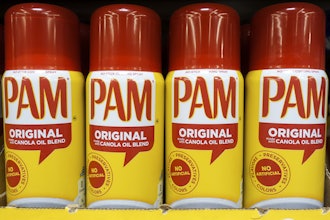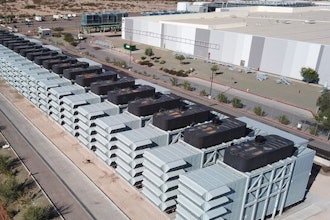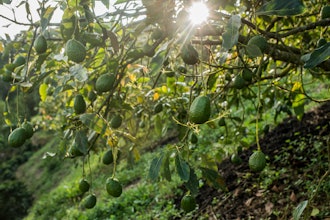The White House on Tuesday threatened to veto a Senate bill that would block new federal rules to protect smaller streams, tributaries and wetlands from pollution and development.
Senators are voting Tuesday on whether to consider the bill. Most Democrats are opposed to the legislation, saying that the Obama administration rules will safeguard drinking water for 117 million Americans and should remain in place. The White House said the regulations are "essential to ensure clean water for future generations."
Republicans and some Democrats from rural states say they fear a steady uptick in federal regulation of every stream and ditch. Senate Majority Leader Mitch McConnell, R-Ky., said on the Senate floor that the regulations are "a cynical and overbearing power grab dressed awkwardly as some clean water measure."
It was unclear whether McConnell would have the 60 votes to proceed to consideration of the bill.
Federal courts have already put the rules on hold as they consider a number of lawsuits that were filed immediately after the Environmental Protection Agency and the U.S. Army Corps of Engineers issued the regulations in May.
The rules clarify which smaller waterways fall under federal protection after two Supreme Court rulings left the reach of the Clean Water Act uncertain. Those decisions in 2001 and 2006 left 60 percent of the nation's streams and millions of acres of wetlands without clear federal protection, according to the EPA, causing confusion for landowners and government officials.
The EPA says the new rules would force a permitting process only if a business or landowner took steps that would pollute or destroy the affected waters — those with a "direct and significant" connection to larger bodies of water downstream that are already protected. For example, that could include tributaries that show evidence of flowing water.
The Senate bill would force the EPA to withdraw and rewrite the rules. Democratic supporters of the regulations say that would just cause even more confusion.
"We shouldn't pass legislation that would create even more uncertainty and invite years of litigation," said Sen. Barbara Boxer, D-Calif.
The House passed a similar bill earlier this year.
Farm and business groups are among the rules' chief opponents, and more than half the states have sued the government in an attempt to block them. Officials from states such as Georgia, New Mexico and Wisconsin have suggested the regulations could be harmful to farmers and landowners who might have to pay for extra permits or redesign their property to manage small bodies of water on their private land.
The EPA has argued the criticism is overblown. Since the rules were originally proposed last year, the agency has been working to clear up some misconceptions, like some critics' assertions that average backyard puddles would be regulated. Current exemptions from the Clean Water Act for farming practices, including plowing, seeding and the movement of livestock, among other things, will continue.






















